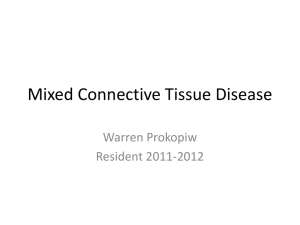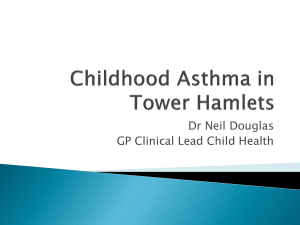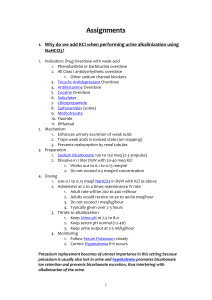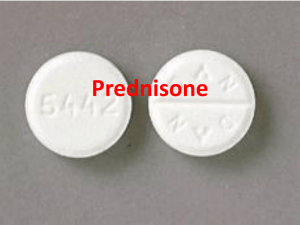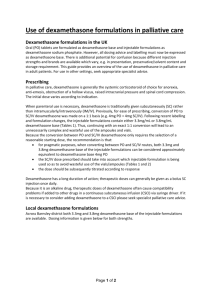William Stoudemire MD (UNC Pediatric Resident, PGY 2) and Olivia
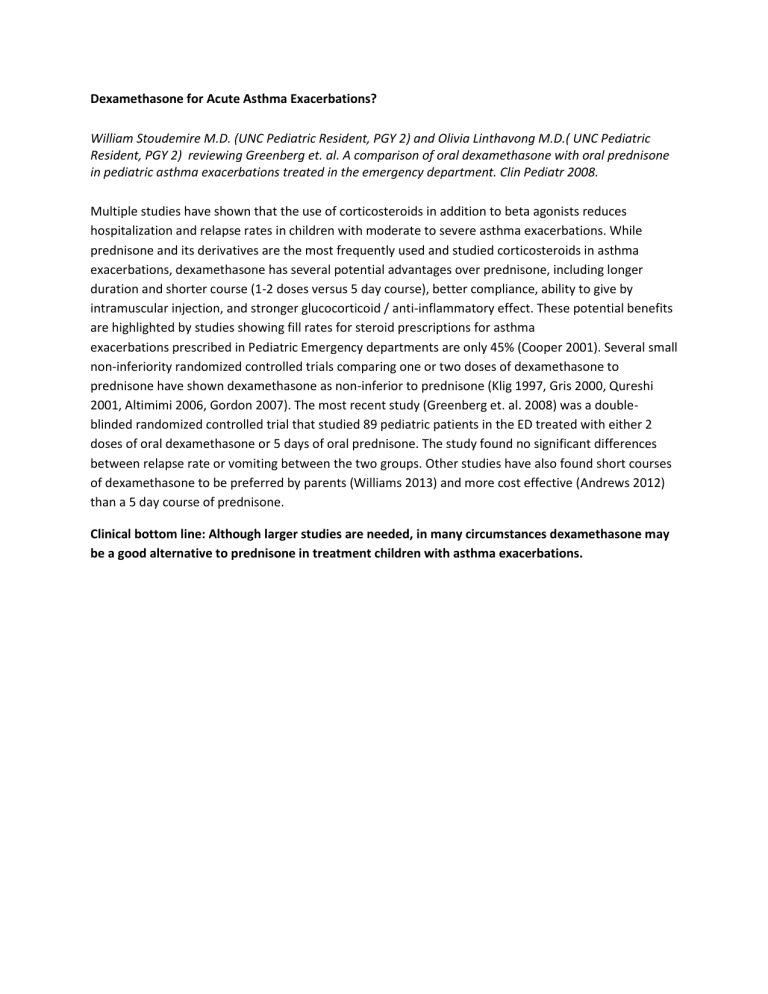
Dexamethasone for Acute Asthma Exacerbations?
William Stoudemire M.D. (UNC Pediatric Resident, PGY 2) and Olivia Linthavong M.D.( UNC Pediatric
Resident, PGY 2) reviewing Greenberg et. al. A comparison of oral dexamethasone with oral prednisone in pediatric asthma exacerbations treated in the emergency department. Clin Pediatr 2008.
Multiple studies have shown that the use of corticosteroids in addition to beta agonists reduces hospitalization and relapse rates in children with moderate to severe asthma exacerbations. While prednisone and its derivatives are the most frequently used and studied corticosteroids in asthma exacerbations, dexamethasone has several potential advantages over prednisone, including longer duration and shorter course (1-2 doses versus 5 day course), better compliance, ability to give by intramuscular injection, and stronger glucocorticoid / anti-inflammatory effect. These potential benefits are highlighted by studies showing fill rates for steroid prescriptions for asthma exacerbations prescribed in Pediatric Emergency departments are only 45% (Cooper 2001). Several small non-inferiority randomized controlled trials comparing one or two doses of dexamethasone to prednisone have shown dexamethasone as non-inferior to prednisone (Klig 1997, Gris 2000, Qureshi
2001, Altimimi 2006, Gordon 2007). The most recent study (Greenberg et. al. 2008) was a doubleblinded randomized controlled trial that studied 89 pediatric patients in the ED treated with either 2 doses of oral dexamethasone or 5 days of oral prednisone. The study found no significant differences between relapse rate or vomiting between the two groups. Other studies have also found short courses of dexamethasone to be preferred by parents (Williams 2013) and more cost effective (Andrews 2012) than a 5 day course of prednisone.
Clinical bottom line: Although larger studies are needed, in many circumstances dexamethasone may be a good alternative to prednisone in treatment children with asthma exacerbations.
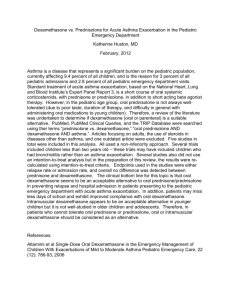
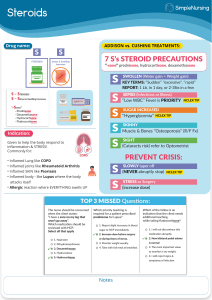
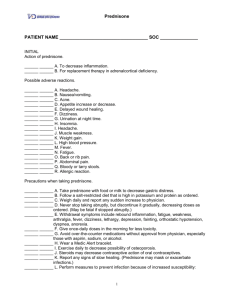

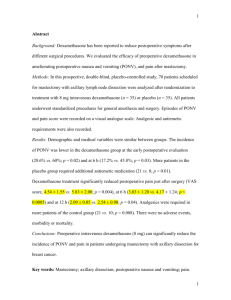
![[Drug Name] Generic Name: Compound Anisodine Hydrobromide](http://s3.studylib.net/store/data/007043112_1-d16b4f2e5f96c851498d41cb4852b648-300x300.png)
